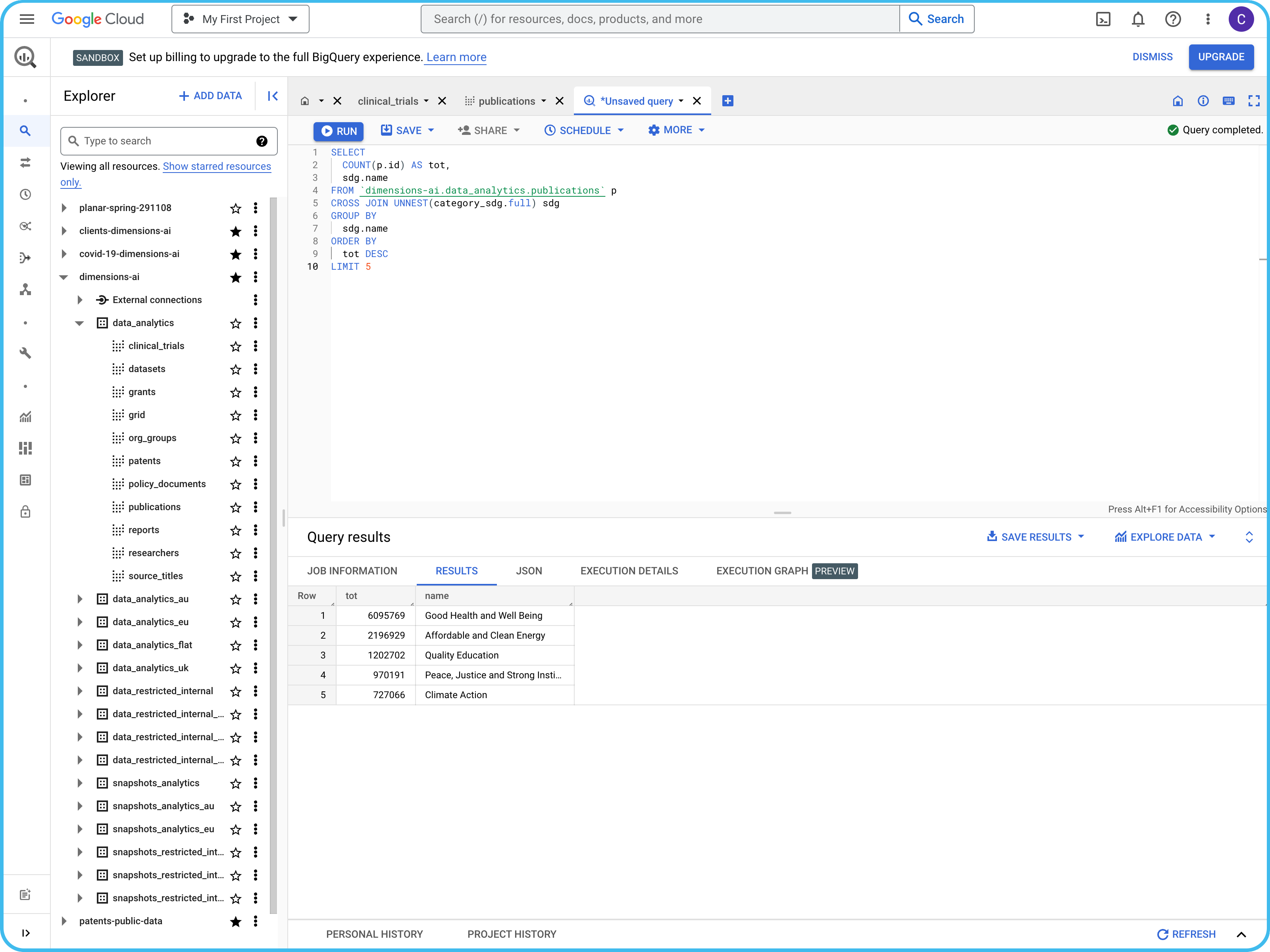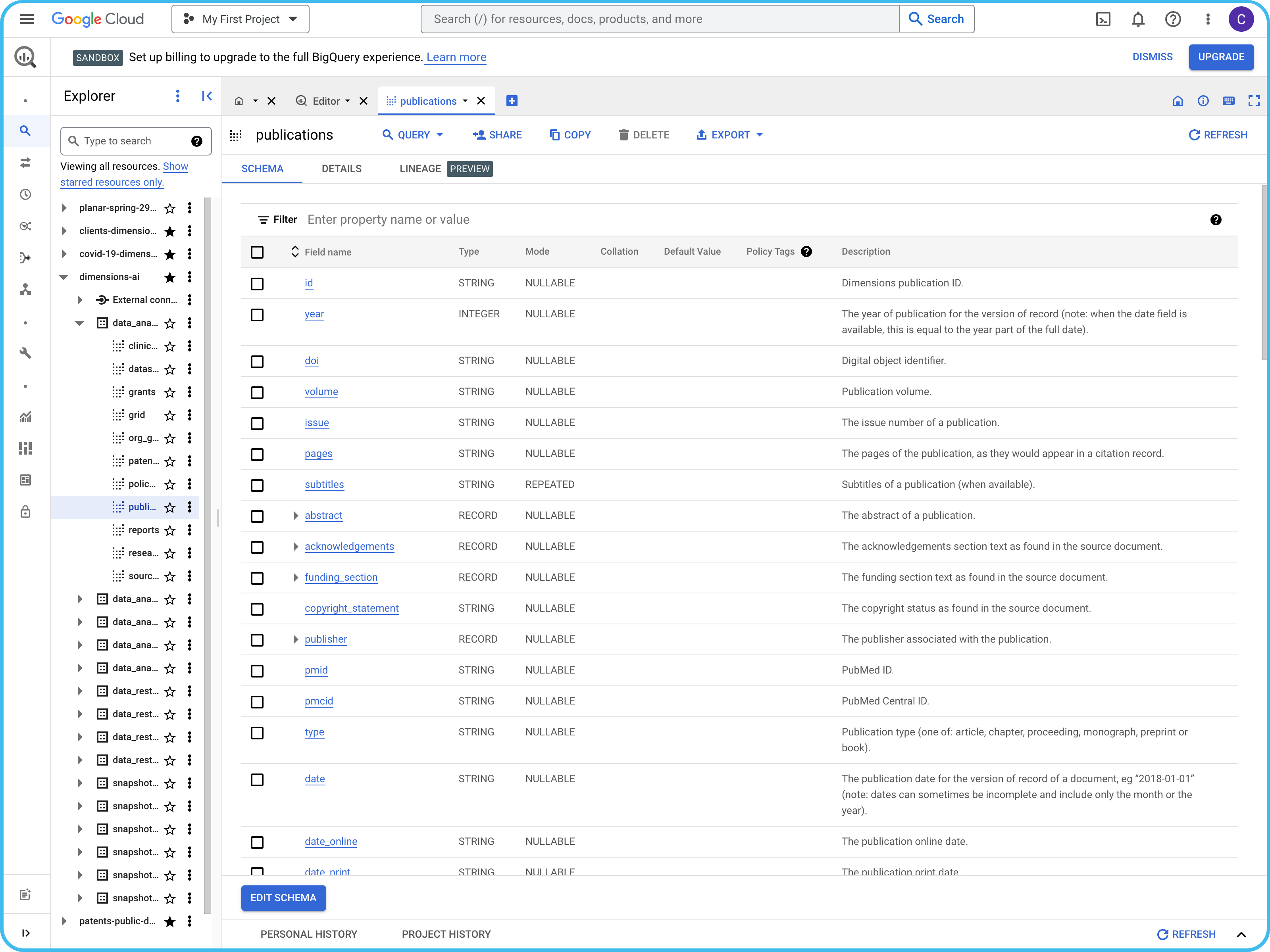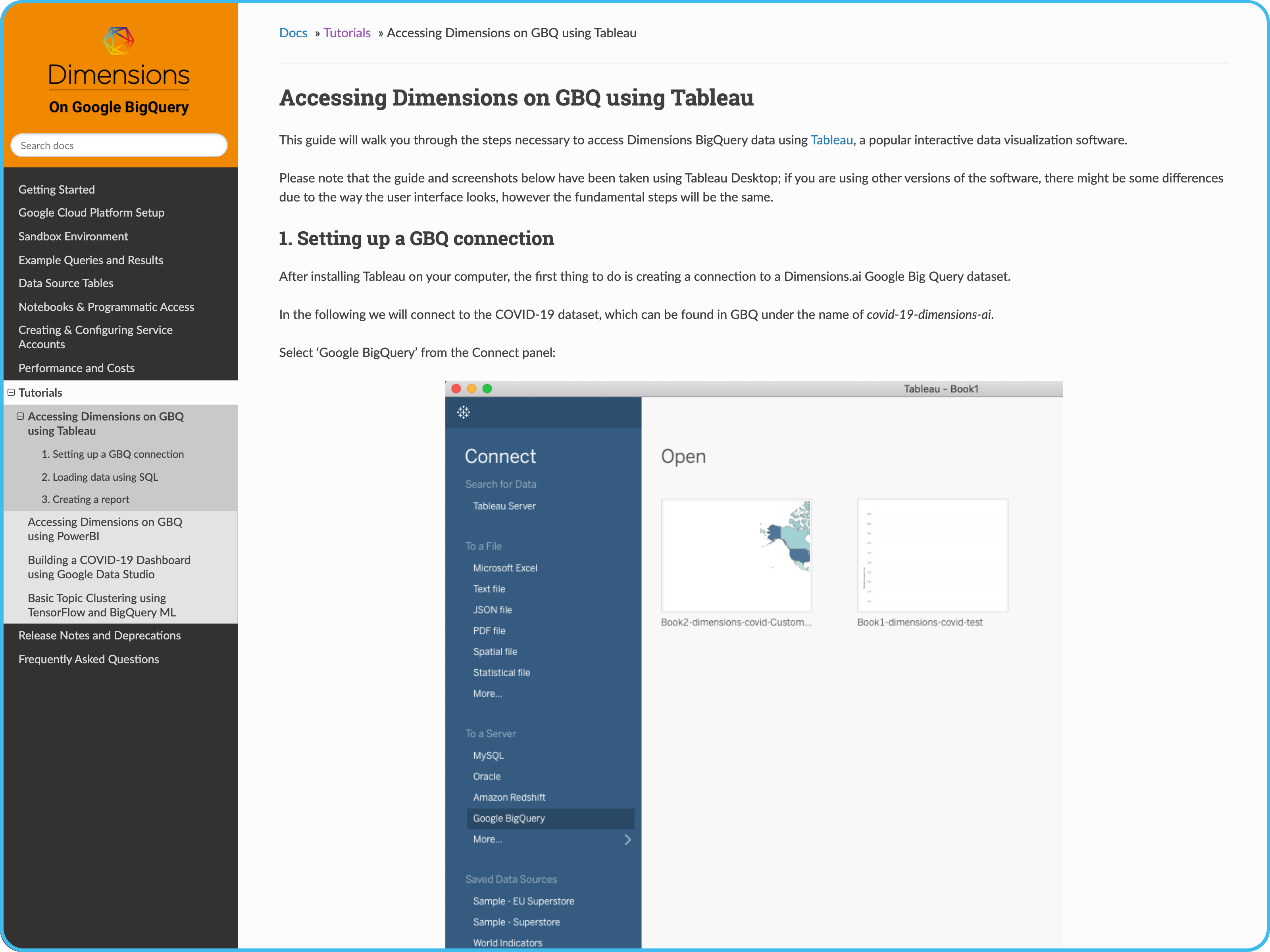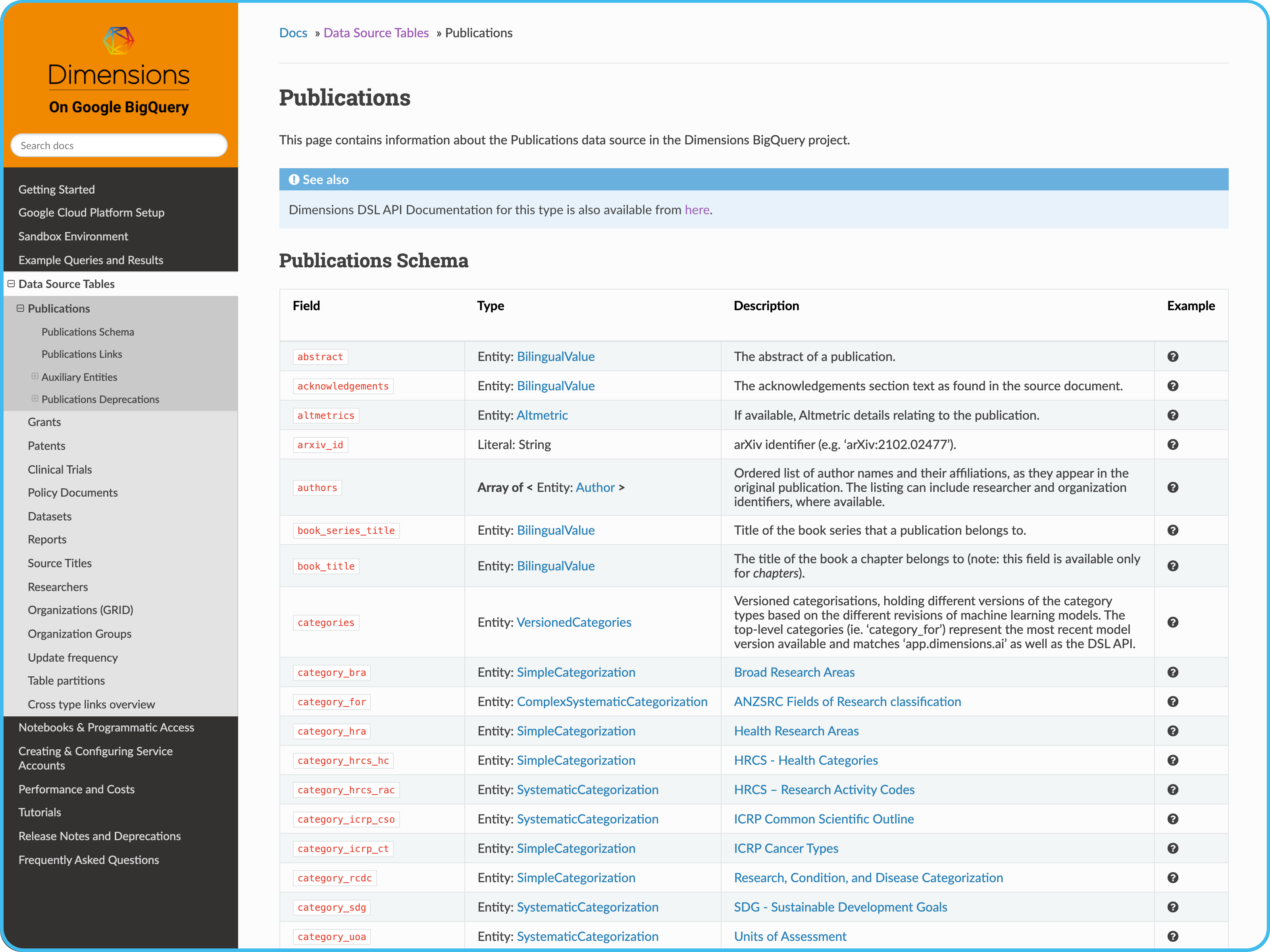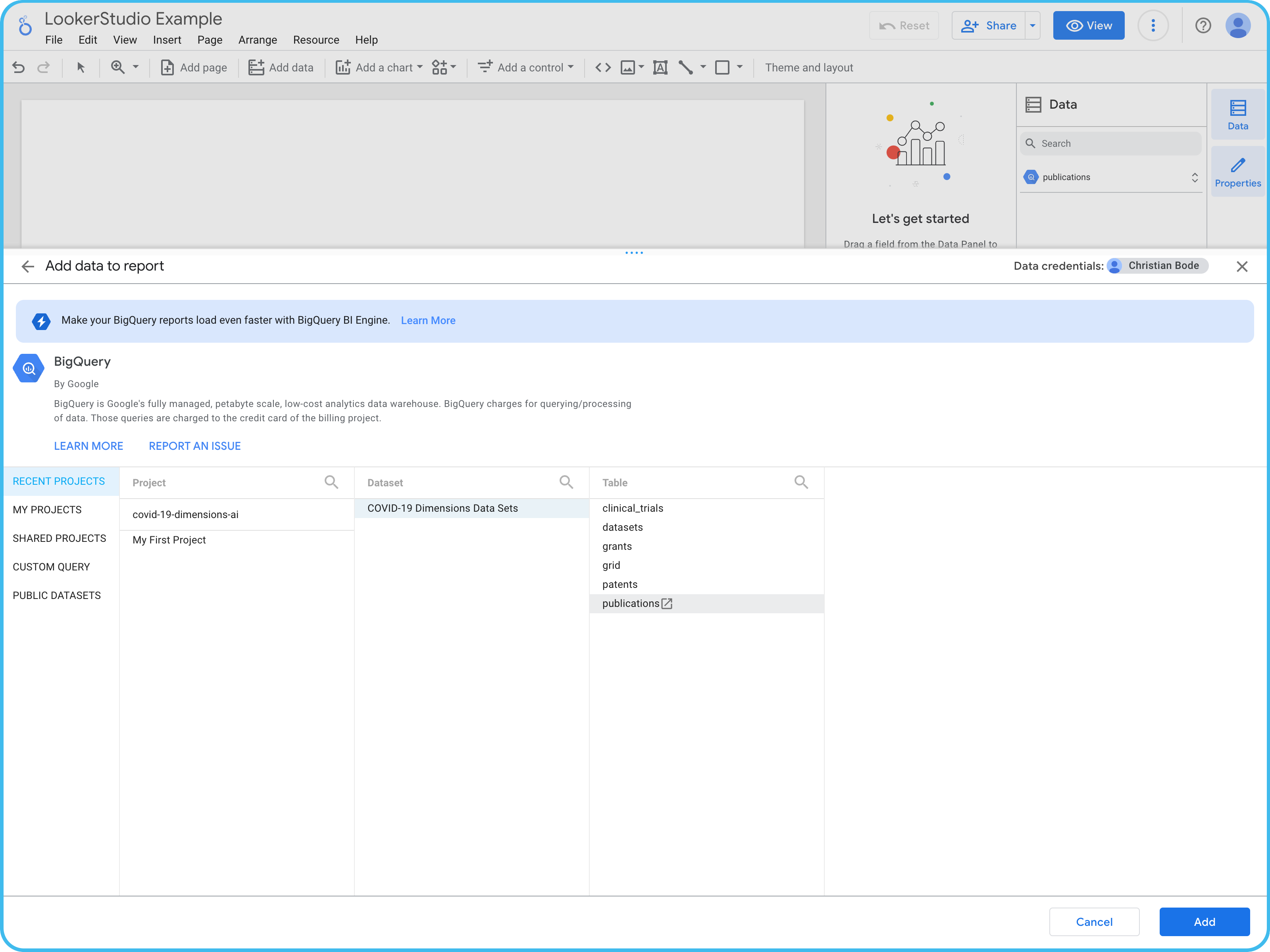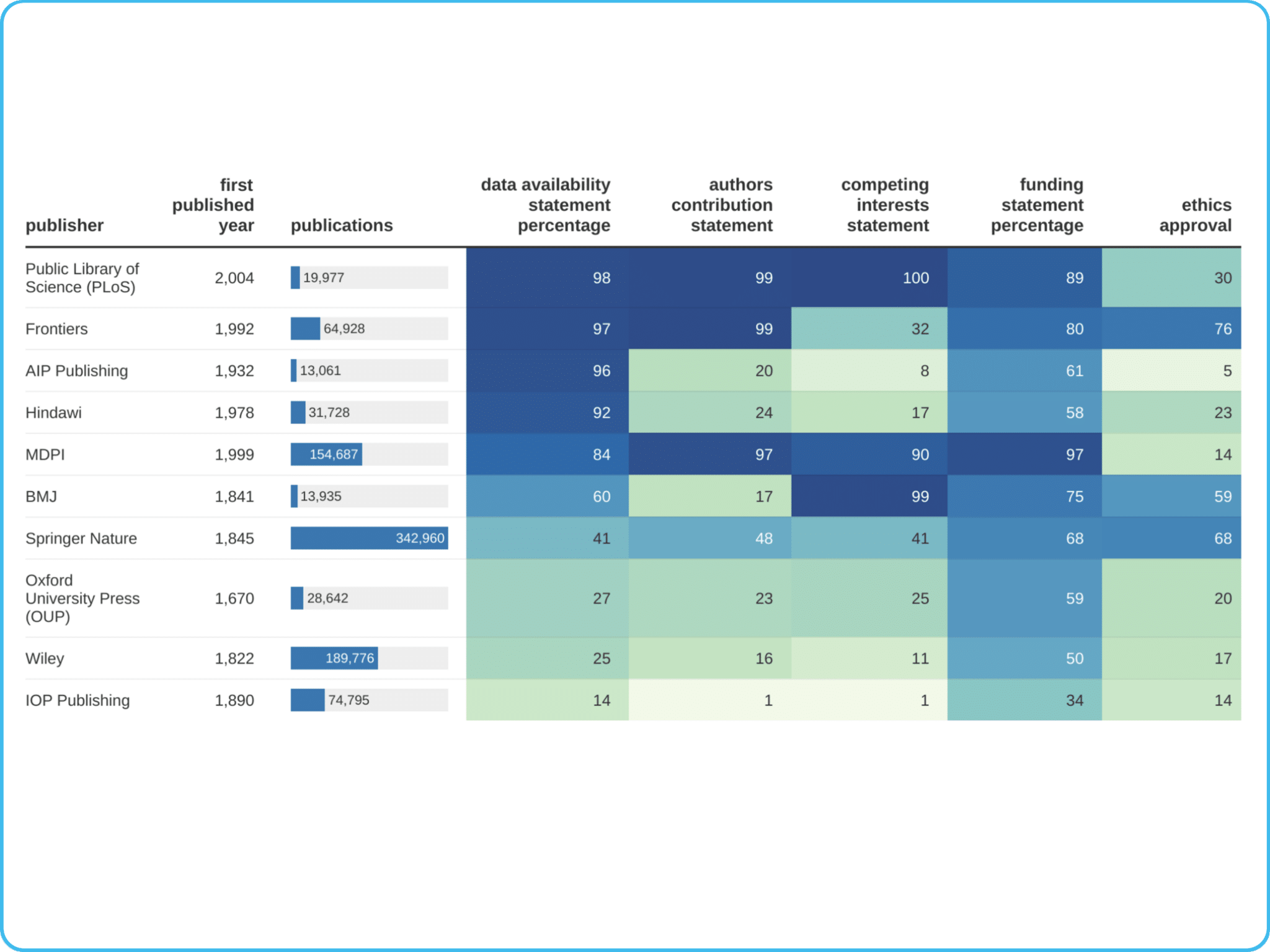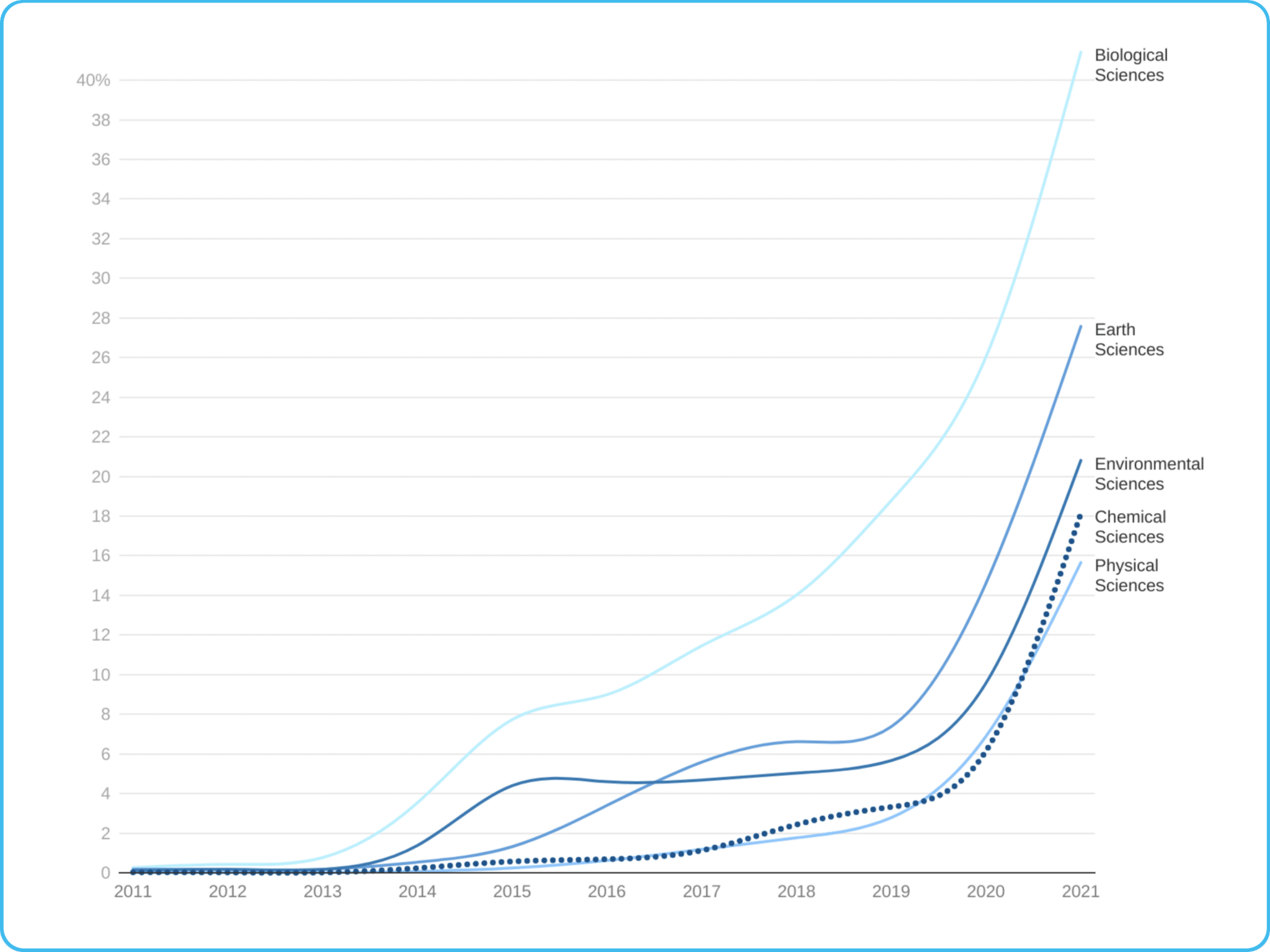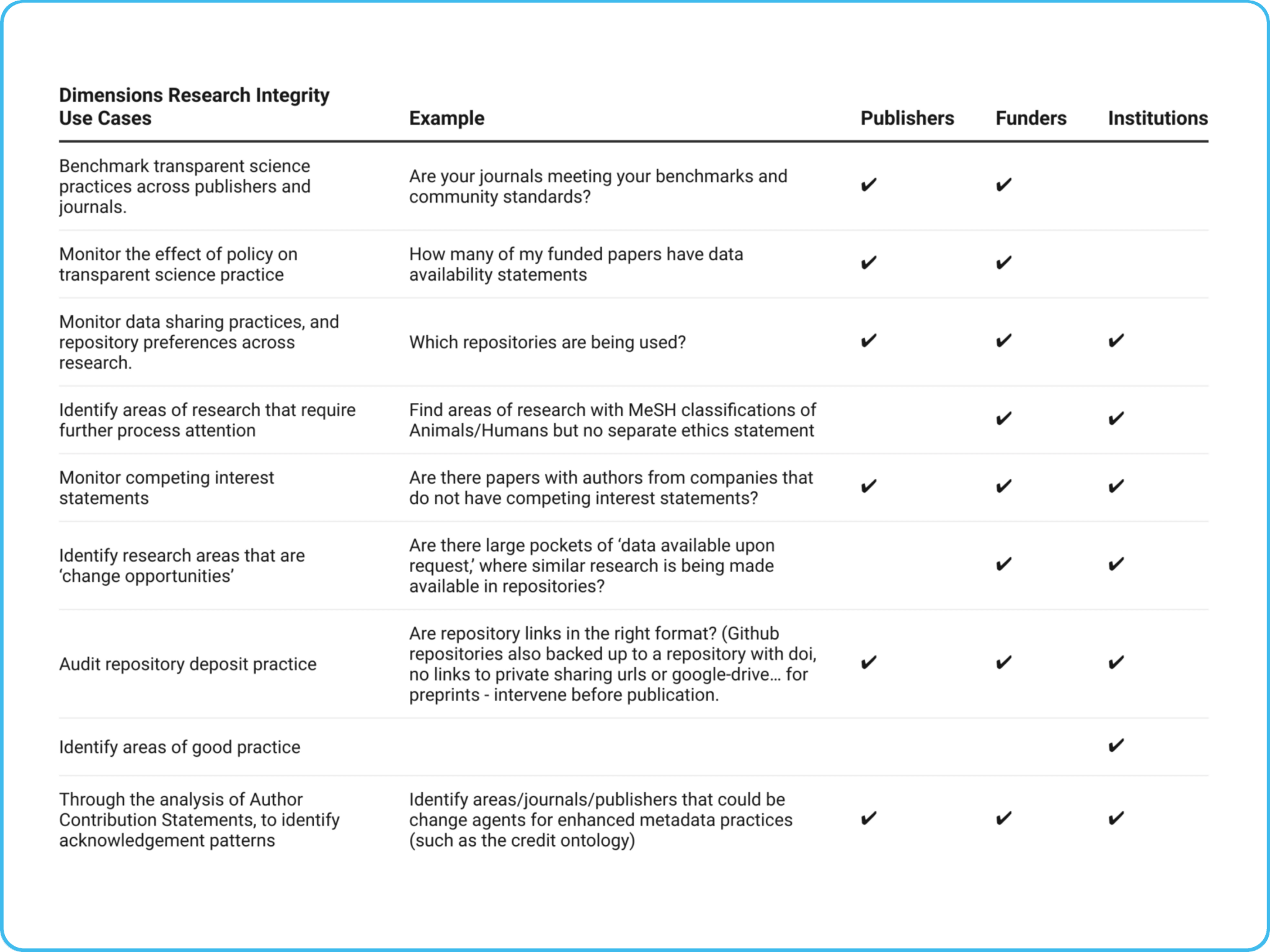Comprehensive Dataset for Research and Innovation
Dimensions on Google BigQuery (GBQ) offers a robust solution for combining your organization’s internal data with the expansive Dimensions dataset. It enables seamless integration with Business Intelligence tools and data visualization platforms to explore billions of data points in seconds. Whether you’re streamlining research workflows, uncovering hidden trends or making data-driven decisions, the Dimensions BigQuery analytics tool offers the speed and flexibility to extract actionable insights faster than ever.
What Dimensions GBQ Can Do for You
By combining Dimensions data with your internal datasets, you can enhance your capabilities across multiple areas:
- Competitive intelligence: Track competitor activities, from publications to funding sources, to assess their strategic focus.
- Horizon-scanning and emerging trends: Spot early signals of disruptive innovations and emerging technologies to guide R&D investments.
- Innovation landscape mapping: Visualize entire fields of research or technologies to assess market gaps and emerging research frontiers.
- Partnership and collaboration networks: Identify leading organizations, researchers and academic-industry partnerships driving innovation.
- Key opinion leader (KOL) identification: Locate thought leaders and influencers across disciplines to inform strategic relationships.
- Talent acquisition and recruitment: Identify top researchers in specialized fields for hiring or collaborative opportunities.
- Performance and benchmarking: Assess your organization’s impact by benchmarking it against peers, competitors and global standards.
- Tracking funding flows and citation patterns: Monitor funding trends, track grants and analyze citation behavior to guide future investments.
- Literature gap analysis: Identify underexplored research topics to guide future projects and publications.
- Marketing and communication strategy: Develop data-backed strategies by analyzing how research resonates across different audiences and channels.
- Social and economic impact of research: Measure the downstream impact of your organization’s research and publications on society and policy.
Verify Research Integrity and Practices With Trust Marker Analysis
Our big data analysis tool gives you visibility into research integrity with Trust Marker analysis. Explore over 33 million publications collected since 2011, assessing transparency and reproducibility across diverse outputs such as articles, book chapters, conference proceedings and preprints. Trust Markers highlight key elements like data availability statements and competing interest disclosures, helping you:
- Track the adoption of trustworthy practices over time by field or organization.
- Benchmark your institution’s research integrity against peers and global standards.
- Ensure compliance with both internal policies and external mandates from funders.
- Uncover trends in research communication that can inform integrity training and policy development.
Accessible Data Types
With Dimensions GBQ, you can access and combine a diverse range of research data types, including:
- Publications
- Datasets
- Grants
- Patents
- Clinical Trials
Policy Documents
Technical Reports
Researchers
Organizations and Groups
Daily updates ensure you’re always working with the latest data, giving you the confidence to make timely, informed decisions.
Technical Details
Dimensions GBQ is available as a subscription service. Our flexible data solutions fit organizations of any size — from research institutions to global enterprises. Contact us to explore how our solutions can meet your public or private data integration and research needs.
Supercharge Your Data Analysis With Altmetric on GBQ
Maximize your research impact with Altmetric on GBQ, a cutting-edge tool for data analysis from Altmetric, our sister company. When you pair this tool with Dimensions GBQ, you gain a comprehensive view of the research landscape, blending both traditional metrics and real-time engagement from social media, news outlets, policy documents and more — allowing you to see how your research resonates beyond traditional academic circles.
Ready to See How Dimensions GBQ Can Transform Your Data Analysis?
Please fill out the form below to request a demo or quote. One of our team members will contact you shortly.

